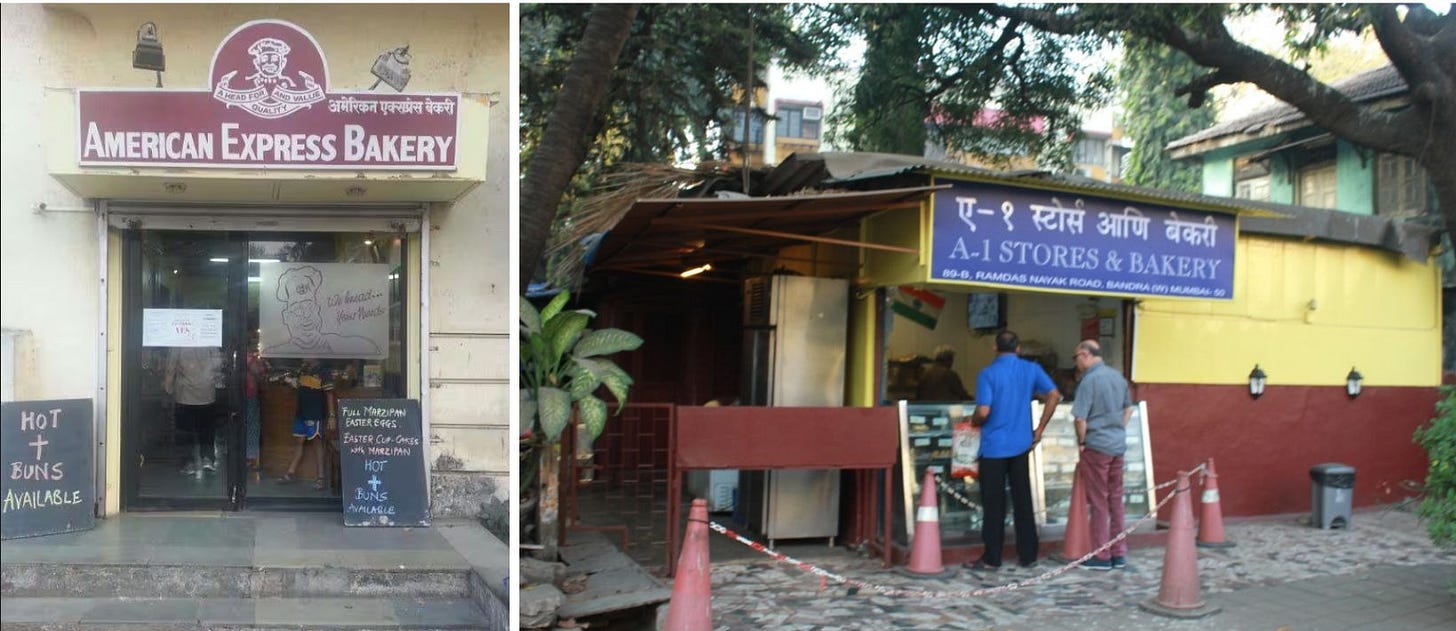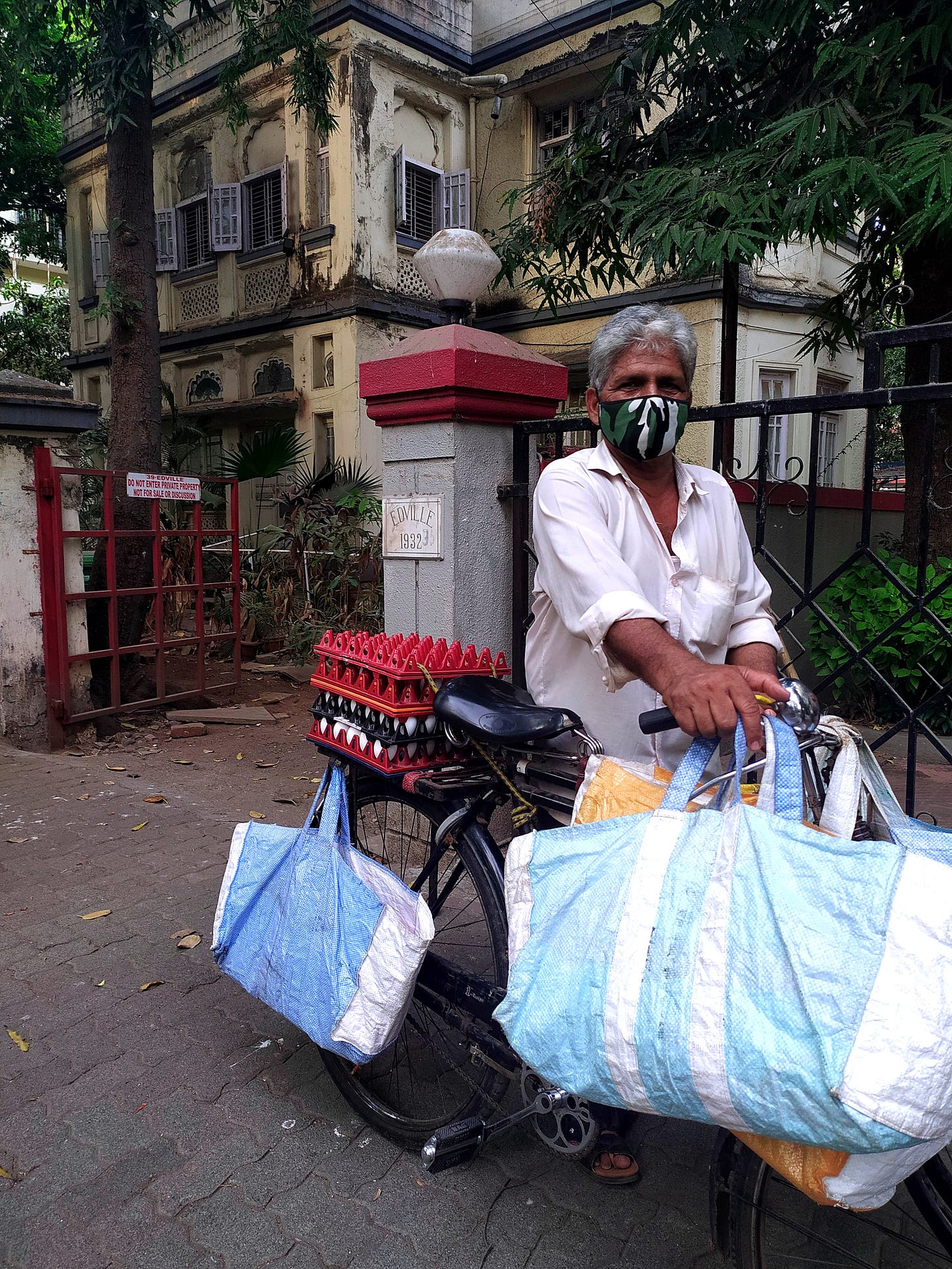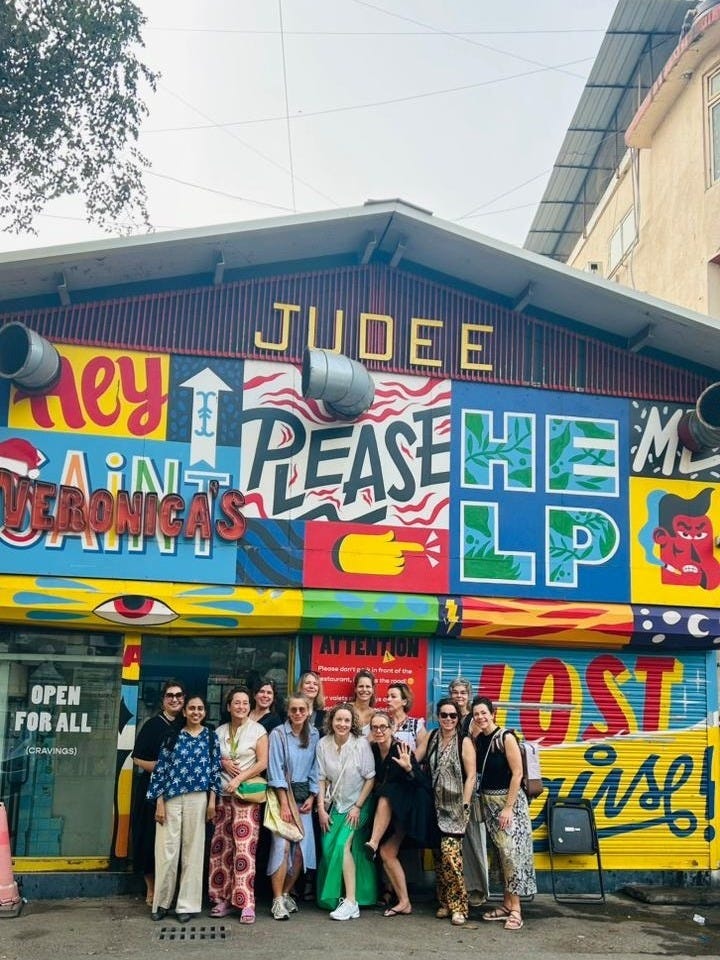BREAD & BREAKFAST
in the bylanes of Bandra
It's a beautiful January morning in Bandra and there is a slight nip in the air that blends deliciously with the mild winter sun. Even as the city rises and rushes into its activity and chaos, the mood in the bylanes of the villages in Bandra is quiet and tranquil. This languid pace is enhanced by the sounds of melodious Christian hymns floating out of the quaint cottage windows as people in open verandas read the morning newspaper or tend to plants on window sills. The stillness of this peaceful morning is broken, however, by the sound of a bicycle bell announcing the arrival of the pao, an essential of the daily breakfast in Bandra.
A pao (pronounced with a nasal sound) is a square or rectangular loaf of soft, fragrant leavened bread made by kneading flour, water and yeast (used as a leavening agent) into a soft dough, and baked in traditional, often wood fired ovens. Brought into India by the Portuguese during their colonisation of Goa, a coastal region on the western coast of India, the pao travelled to Bandra with the Goan bakers who moved to Bombay and opened bakeries in the Catholic enclaves spread over its extent.
Whilst Goans baked many varieties of bread including the poie, (a wheat based round bread, dusted with wheat bran), katre pao (a butterfly shaped bread cut and shaped by scissors or katre), or the ring shaped kankonn (meaning bangle), Bandra fell in love with the pao and its variant the brun or kadak pao, a bread with a crumbly crust and soft center. To this day, having pao for breakfast is a daily ritual for most local inhabitants. It is eaten either with sausages, leftover curry or vegetables, or with omelettes or fried eggs or simply dunked in tea and relished.
The fluffy pao with its mildly sour aroma is soul food for the true Bandraite.
The bakeries start work in the wee hours of the morning and the vibe at the bakery is filled with the aromas of baked goods. The staff scurries behind the counter refilling trays with fresh bakes and catering to the string of faces that line up for their daily bread, and end up buying other goodies like cakes and biscuits, puffs and pies that daintily perch in the glass display.

However, with low profit margins, labour intensive work and competition from factory-produced sandwich bread, and fancy new patisseries, local bakeries in Bandra have found it hard to survive in recent times. High real-estate costs have sent many bakeries away to other parts of the city with these spaces being given out to other cafes or establishments.
The pao ,on the other hand, has skyrocketed in its popularity across the city and beyond. Pao (or pav as it is commonly referred to these days) served with omelette, bhurji or kheema (mince meat) was adopted as a popular combination in Irani cafes close to a century back. Today, we find the pao, which was once associated only with the Christian community, as a common denominator in many forms of street food including the pav bhaji, wada pav, misal pav, and dabeli to name a few.
In the bylanes of Bandra, however, the traditional pao still reigns supreme. With local bakeries fading away, the pao now arrives on a bicycle in a neat cluster called laadis stacked in large cloth bags. Alongside the pao and kadak pao one finds sliced bread, rusk (a sweetish toast-like sliced bread), khari (a flaky savoury pastry), and trays laden with fresh eggs. Every morning, hundreds of families dunk this fluffy, golden brown crusted bread into steaming cups of tea and begin their day with the taste of familiarity and a flavour of a time gone by.

The art of making bread has been a part of the culinary history of many ancient civilisations such as the Indus Valley and Ancient Egypt. The tandoors of Central, West and South Asia and Africa continue to provide different forms of bread - pita, khubz, roti, naan made from wheat, millets and rye. But here, in Bandra, it is the humble pao that continues to find a place in the hearts and stomachs of its people, keeping the ancient ritual of partaking and sharing bread alive and thriving.
“Give us this day our daily bread…”
- The Lord’s Prayer
Next time we sink our teeth into a delicious pao, let us whisper a prayer of thanks to the farmers who tilled the land, and the bakers who kneaded the dough and baked the bread, and all those who enabled it to reach our plate.
Every newsletter I share is a labour of love. Please support it by buying me a book.
Thank you for being with me on my journey to Spread Love, Only Love. Do like, comment, share and subscribe to support independent writing.






This is a great post Minaz! So informative and yes I must admit I felt like gobbling some bread myself!
Agree with each of the statements. The Pao is truly a part of the cultural fabric of Mumbai!